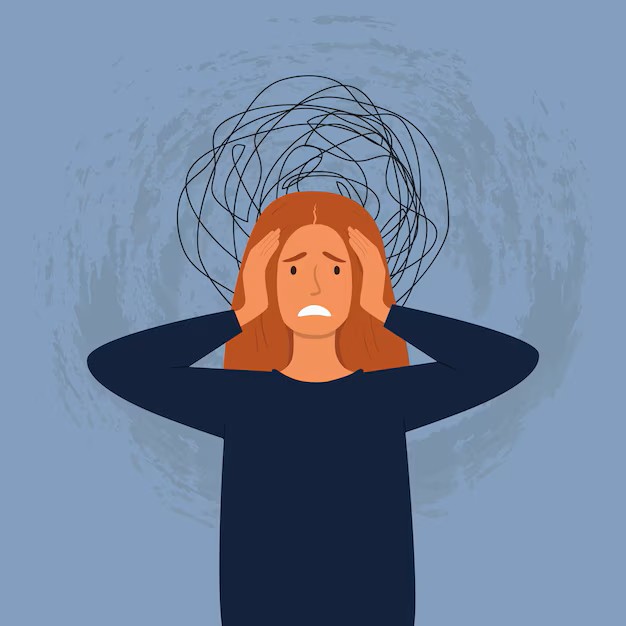It's Not in Your Head: The Physical Symptoms of Anxiety
by Paityn Johnston | Thursday, Mar 24, 2022
I remember first learning of the word ‘anxiety’ and feeling an immense sense of relief that there was a word to associate with all the mental and physical distress I had experienced when I was younger. At the time, I had been diagnosed with an anxiety disorder, but it took a while for me to separate the disorder with the feeling because they were so intertwined. It also doesn’t help that when you look up ‘anxiety’ as an emotion, it is represented as if it's ‘wrong’ or that it itself is a disordered type of emotion. Concern, worry, and anxiety are perfectly normal, and expected, within reason. However, the recurring appearance of these emotions in daily life can lead to some behaviors that one might not have experienced earlier in their lives.
Physical Manifestations: What even are those? & What do I do?
I know, I know, a big word like ‘manifestations’ can be scary, and that’s okay. The term ‘physical manifestations’ means that sometimes when your brain is overwhelmed, your body can start to react. Some of these manifestations can look like bouncing your leg repeatedly, picking at scabs, or nail biting. If you find yourself doing these without thinking about it, or it takes someone else pointing it out for you to notice, then it is likely your body is seeking ‘sensory input’. Usually, this just means that your body needs to move to make up for all the mental energy you’re using. A wonderful way to help yourself may be to simply go for a walk and come back to your work. If you feel that getting up and walking away may be more distracting, turning on some music may be better. Personally, I use instrumental music (so I’m not focusing on the words too much) or white noise (this one can be interesting as simulating an environment may be just what you need). Another type of music, if you find yourself lacking in choices, is to go back to the tunes you know and love. By listening to music that you’re familiar with, you can get ‘into the zone’ and truly focus; just try not to get caught up in lip syncing while you’re at it.
Serious Manifestations: When do I act?
Some more serious manifestations of anxiety can look like sleep problems, shivering, excessive sweating, nausea, general fatigue, or even unexplained pain. I know, scary, right? These are different from the other manifestations because they are more severe and generally harder to ignore. If you find yourself with any of these symptoms, then excessive anxiety may be the case. A good way to help combat these health problems is to determine if the issue is within your control.
If the issue is something you can control, like a deadline or an assignment, then face it head on, within reason of course. Stop procrastinating! Anxiety is an emotion that exhibits a form of ‘evolutionary preparedness’. This means that we react to common stressors in the modern era as a form of protection the same way we reacted to things like predators years and years ago. In some ways, this harms us when we avoid that big deadline next week. It may not feel as pressuring as a huge lion, but we still tend to try avoiding the situation. Do yourself a favor and take initiative! Often, we rely on ‘heuristics’, or snapshot judgments, to do our thinking at a glance, making our issues seem much bigger than they may actually be. One of my tried-and-true methods is setting a timer for 5-10 minutes and diving headfirst into my issue. Of course, you can start with the easier tasks first and work in order. However, bottom-up induction helps me to create a ‘bigger picture’ of what I need to work on at that moment. Take a headcount of your To-Do List, and your brain and body will thank you.
As for issues that are outside of your control, it is important to understand that you do have control over how much your anxiety may control you. In other words, while external factors may cause us stress and distress, we have choices in how we react physically and emotionally to these factors. If none of the methods above are helpful, then here’s a secret weapon: Ask for help !
If you can’t explicitly ask for help, then try to talk about your issue with others. You can say that it’s a friend’s issue, or something you’re genuinely curious about, without implicating your privacy, if that’s a worry. An incredibly important piece of advice is that you are never alone! Even by complaining, you could find someone in the same situation as yours and move forward together towards a less anxious future.
Sources
https://www.pnas.org/content/98/20/11818.full
https://www.ncbi.nlm.nih.gov/pmc/articles/PMC3684250/


